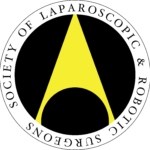Multlidisciplinary Plenary Sessions MISWeek 2024
THURSDAY SEPTEMBER 26, 2024:
Artificial Intelligence: Implications and Indications in MIS Surgery and Robotics
Director: Paul Toomey, MD
Artificial Intelligence (AI) refers to the science and engineering of making intelligent machines and intelligent computer programs to mimic human decision-making and problem-solving capabilities. Machine learning is a subfield within AI that trains algorithms on data to gradually improve their accuracy in a manner that imitates how humans learn. The expansion and use of such technologies continues to increase since the FDA first approved robotically assisted minimally invasive surgical procedures in 2000. AI-assisted technology has the potential to greatly mitigate the global burden of disease by improving access to necessary medical and surgical care. The most frequent use of AI-assisted technology is in preoperative planning and intraoperative guidance. Use of autonomous surgical technology is currently in its infancy and is the subject of clinical trials in urology, gynecology, spine, and GI surgery. AI technology has many potential benefits, particularly in increasing access to and availability of necessary surgical care. Surgery will continue to integrate these evolving technologies preoperatively, intraoperatively, and postoperatively. At the same time the known risks of bias incorporated in AI programs and the risk of data breaches could perpetuate social inequality and patient harm. It is conceivable that robots will be able to perform surgery relatively independently, with minimal assistance in the future. This session will explore current and future applications of AI in surgical disciplines and will discuss some of the controversies and issues in the adoption of these technologies.
The Global Reach of Telesurgery
Director: Sharona Ross, MD
The so-called Lindbergh operation was the world’s first complete telesurgical procedure. Professor Jacques Marescaux and his team from the IRCAD (Institute for Research into Cancer of the Digestive System) successfully performed a laparoscopic cholecystectomy on September 7, 2001 on a 68-year-old female patient in surgical ward A in Strasbourg Civil Hospital, in Eastern France. Dr. Michel Gagner controlled the arms of the robot from New York City, accomplishing the procedure in 45 minutes. This proof of concept ushered in a new era and opportunity to expand the reach of minimally invasive surgery and its benefits globally. Telesurgery has been used to successfully execute MIS procedures in areas without the resources or local expertise to accomplish them as well as a vehicle to provide operative assistance, coaching and mentoring and monitoring of the technical conduct of surgeries. Innovations in each of these areas are ongoing. This session will discuss issues and requirements for a successful telesurgical program, the growth of third parties as intermediaries and vendors of telesurgical technologies and connectivity, regulatory and ethical considerations and responsibilities of surgeons engaging in telesurgery.
FRIDAY SEPTEMBER 27, 2024:
Building Health Equity: Making Surgery Accessible in Low Resource Environments
Director: Jessica Opoku-Anane, MD, MS
Five billion people lack access to safe, timely, and affordable surgical care, with the vast burden concentrated in low-to-middle income countries. The striking gap between the availability and need for surgical expertise that is projected to worsen over the next decade. There is growing interest in global surgery and increasing numbers of opportunities to participate. The aims of any project undertaken must be focused on addressing local priorities based on needs assessments, and in conjunction with local stakeholders. Participants have an obligation to be familiar with the language, customs, and standards of their destination prior to travel, in order to engage in respectful and culturally competent care. Site-specific preparation must be undertaken including a thorough review of the current resources, infrastructure, and training paradigm at the hosting institution. With respect to clinical care, visitors must defer to the needs and educational requirements of local trainees. Deployment of expertise-guided technologies will increase the ability of practitioners and their teams to safely reach competency in MIS procedures. These technologies will dramatically improve outcomes in the developing world and have the potential to improve patient care globally. This session will discuss the practical complexities and ethical challenges of global surgery, explore the breadth of available opportunities, and provide vignettes of the experiences of surgeons participating in global surgical programs.
Healing Hands, Breaking Barriers: Transforming the Face of Surgery
Director: Jessica Ybanez-Morano, MD, MPH
Data suggests that surgery has much work to do to make its environments and the health care provided to patients diverse and inclusive. Under-Represented in Medicine (URiM) surgeons enter academic surgery in fewer numbers, have the lowest rates of promotion and are less likely to remain in academia. There is a need to increase diversity at the highest level of academic surgical leadership in order to create a diverse, equitable, and inclusive environment that is more reflective of the population. Creating equitable and inclusive work climates will allow diverse individuals to succeed and advance their careers. External obligations such as domestic responsibilities should be considered, when implementing institutional programs and policies. Academic culture should be critically evaluated, and interventions targeted at bias awareness and reduction and fostering productivity and promotion must be implemented. Recognizing that glass ceilings and sticky floors exist despite efforts directed at gender parity is crucial to fostering inclusion. Data suggest that women are unlikely to consider a surgical career unless they are exposed to positive role models and experiences in medical education and training. Young surgeons should find a community to become their support system. Societies such as provide access to leaders in surgery who can serve as mentors and coaches. This session draws on the personal experiences and observations of the faculty and will examine and explore strategies and practices to foster success and personal and professional satisfaction while transforming and improving surgical care.
